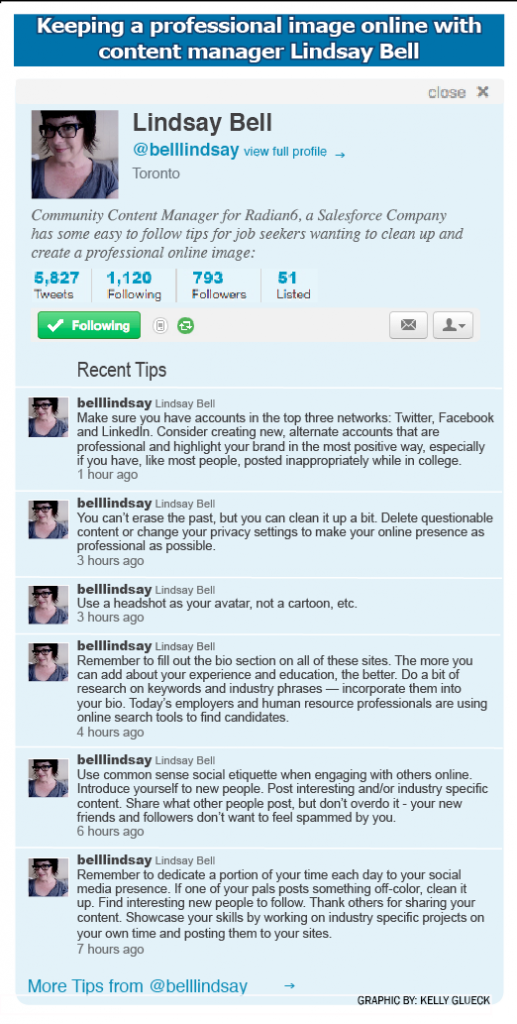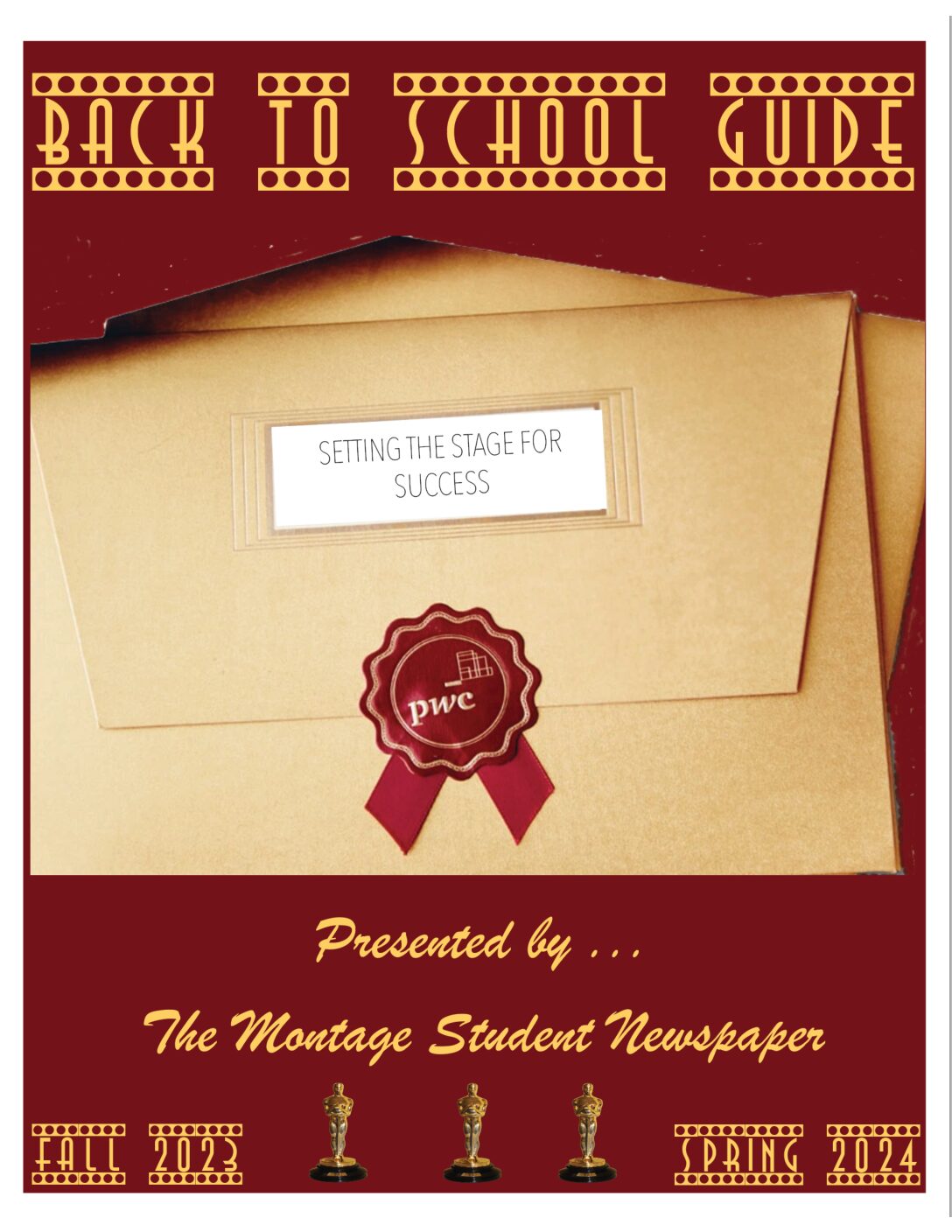Facebook, Twitter, and LinkedIn can help define a student’s image. How that image is perceived is determined by the content one is willing to ‘share’ online.

Mike Ziegler
– Photo Editor –
That Facebook photo tagged from last night might cost someone a chance of landing that dream job. How someone is perceived through his or her social media profiles can be easily overlooked in the post-college job search. Utilizing social media to an advantage, however, can give a candidate an advantage over other applicants.
“College grads need to jump at every possible opportunity to stand out from the crowd,” Nick Gilham said, founder of “A Branded You,” a website dedicated to personal and business branding. “Social media gives you the opportunity to contact people that you may not meet in your day-to-day life.”
The U.S. Bureau of Labor Statistics reports that 70 percent of all jobs are found through networking.
“Job hunting has always been about building relationships with people, reaching out and meeting those who you respect or who you feel might be able to give you advice on the hunt,” Lindsay Bell, Community Content Manager for Radian6, a Salesforce Company, said. “That hasn’t changed.”
The leading social network today is Facebook, boasting more than 600 million active users as of January 2011. Not being careful about what is shared on Facebook, or any social network, can lead to unintended consequences.
“People get in trouble with social media most often by posting inappropriate things on Facebook,” Gilham said. “Potential employers understand that you have a personal life, but they don’t want to see pictures of you drinking and partying every weekend.”
Most college students are familiar with Facebook and Twitter, but LinkedIn, useful for expanding your professional network, may be unfamiliar.
LinkedIn, the smallest of the three social networks, has more than 100 million registered members as of March 2011 according to their about page. As of April 2011, LinkedIn counts more than 11 million recent college graduates, members who have graduated within the last five years, around the world as members.
“LinkedIn can be thought of as Facebook for business people,” Gilham said. “The site allows you to post your work experience, college degree, and a summary of what you want to do in life.”
Gilham views LinkedIn as the best social network when searching for a job.
“It allows you to post your online profile, which is in essence an online version of your resume,” Gilham said. “It is an amazing tool to investigate possible employers.”
Gilham said LinkedIn can also be used to keep in touch with a professional network should a person may need to provide professional and personal references during the job hunt.
“Developing a relationship with people in your field before you need a job is important,” Gilham said. “People are more likely to help out someone they know and trust.”
Each person is his or her own personal brand, Gilham and Bell both explained. Just as McDonald’s, Walmart or any other major corporation is a brand, how people present themselves online is their personal brand and should be treated as such.
“What do you think of when you hear the names Donald Trump, Oprah or Michael Jordan? Each of these people are their own brands,” Gilham said. “College students also have a brand.”
Once a person develops his or her own personal brand to reflect interests, personality and goals of what type of employment they hope to gain, they should connect with others already active in their area of interest by following them on Twitter or connecting on LinkedIn. Having interactions with people in whatever field of work they’re interested in allows them to make themselves more than just a face in the crowd.
Gilham cautioned against adding professionals with similar interests as friends on Facebook.
“Professionals tend to be much more willing to connect on LinkedIn or Twitter than they are on Facebook because these are places where information tends to be more public and professional,” Gilham said.
Once a person is comfortable and has developed a name, or personal brand, for himself or herself, Gilham suggests blogging or creating original content about an area of expertise they may have.
“Blogging allows you to distinguish yourself as an expert,” Gilham said. “If you regularly blog, people will begin to come to you for advice on that subject.”
Each network poses unique challenges of monitoring different privacy settings. In the past, Facebook has been criticized as allowing too much personal information to be made public, such as when they deployed a facial recognition feature that helped users identify pictures of their own friends.
Marshall McLuhan, communication theorist, summed up privacy in the 1960s simply as, “Publication is a self-invasion of privacy.”
“It’s always seemed a bit hypocritical to get up in arms about online privacy and security in between posting to Twitter, sharing on Facebook, detailing your job history on LinkedIn and becoming mayor of your local Starbucks on Foursquare,” Bell said.
Self-restraint on what is shared online is the biggest tool in keeping a professional image online.
“Get the idea that there is online privacy out of your head,” Bell said. “Put a sticky note on your forehead if you need to, so that you think twice about posting party pics from the weekend, or about tweeting after a night on the town.”
Bell said common sense is key in choosing what to post online. Completely blocking your profiles from the public puts you at a disadvantage.
“The bottom line is this: employers are human beings. They understand that mistakes happen, that you may have posted things in the past that do not reflect who you are today,” Bell said. “If you work diligently at showing off the new, wiser you -online and off, you’ll have that dream job in no time.”








